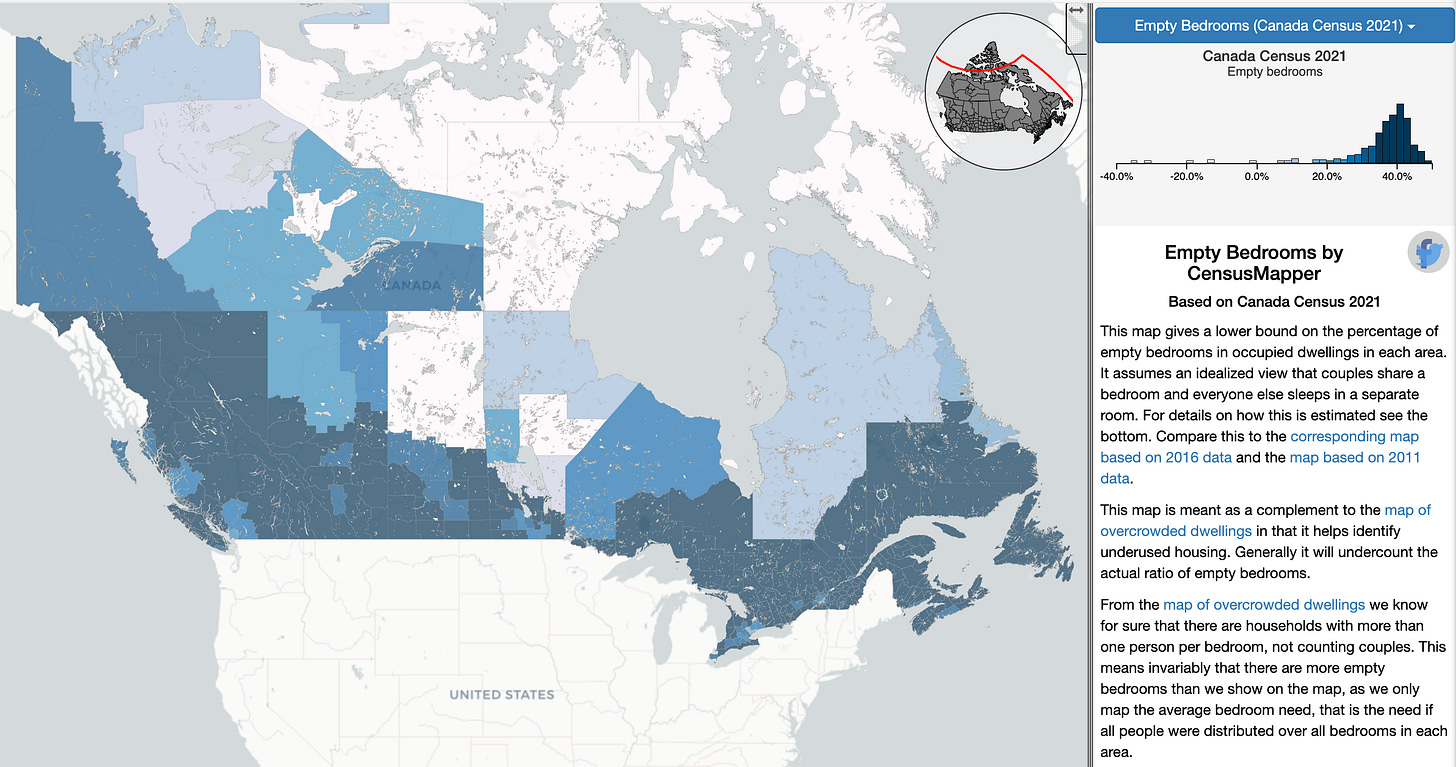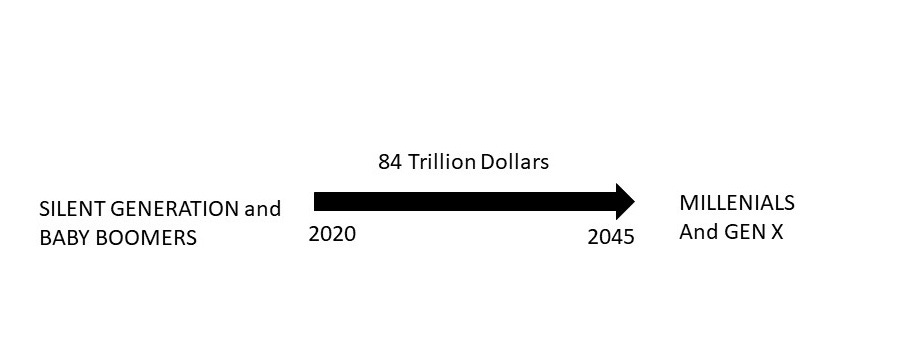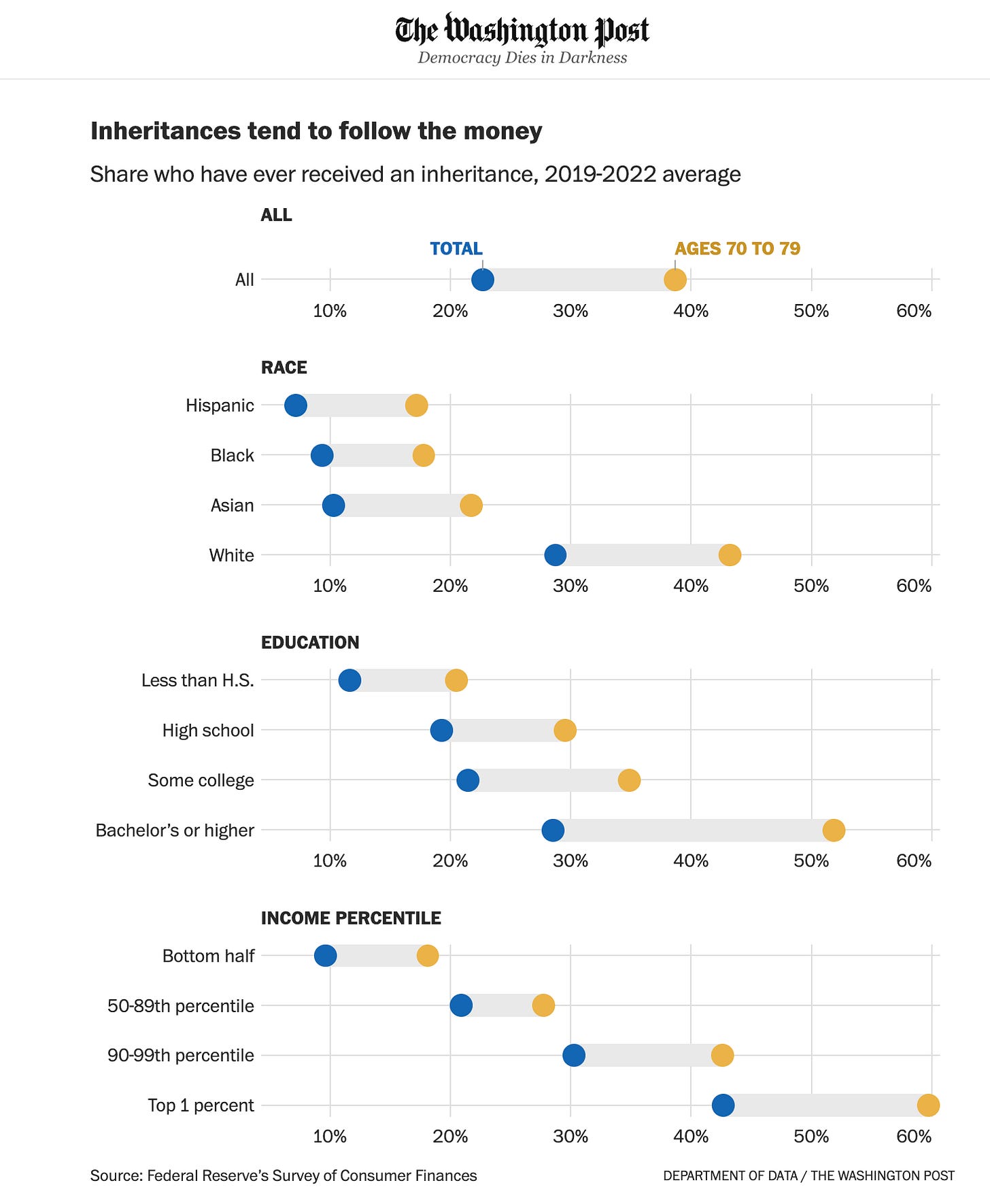Trudeau admits we depend on housing for retirement
...but that equity presents a headwind for Canada's housing market.
75% of those aged 65+ are overhoused, meaning they have too many bedrooms.
The Catch 22: Housing as a retirement plan
“Housing needs to retain its value,” Justin Trudeau told The Globe and Mail’s City Space podcast. “It’s a huge part of people’s potential for retirement and future nest egg.”
I didn’t think we’d see ever see politician publicly proclaim their support for the generational wealth and housing disparity created by their policies in the middle of a housing crisis. However, when you have a by-election to win in a market populated by wealthy homeowners, I suppose nothing is off the table.
You will, however, certainly never find a politician who will admit that in order for housing to be more affordable, house prices need to be lower.
There’s a pretty clear reason for this: around 66% of Canadians own their homes.
This reality means that homeowners are the largest categorizable group of voters in Canada.
Canada’s homeownership rate has been around 65-70% for decades, though it is trending lower in the last few years since 2019, as the next generation of homeowners struggle to purchase their first property. You would imagine this could evolve into something of a priority for politicians facing an election in 2025, but alas, this is not the case. Why?
The answer is simple
Young people haven’t really showed up to vote. It would stand to reason that the perspective of many politicians that young people haven’t been a major deciding factor in past elections, and so they can rely on pandering to older generations with reliable voting patterns.
According to Library of Parliament’s “Youth Voter Turnout in Canada”:
“The decline in youth voter turnout in Canadian federal elections was first observed following the 1984 federal general election. Since then, youth voter turnout remains lower than the turnout for all other age groups, despite intermittent increases in recent years.”
While I think this foolhardy lens will punish them in the next election, their myopia on the matter has been clear in the policy decisions they’ve made in an attempt to support both millennials and homeowners simultaneously:
Sacrificing millennials
So we’ve arrived at a point where millennials have become a sacrificial lamb on the altar of stable retirement for boomers.
“Housing needs to retain its value”
-Prime Minister Justin Trudeau-
There are really only 2 identifiable groups in Canada’s population pyramid. They’re so identifiable that today, our population pyramid looks more like an hourglass. It’s hilariously named, as though they’d always felt it would be shaped like a pyramid.
In this model, the largest demographic in Canada depends on the the second-largest demographic in Canada to keep their asset values inflated. Here’s the problem:
We can’t afford to.
I’ve mentioned this handful of times already, and my last 2 posts are a part of this 3-part list.
If you were a government trying to retain the value of housing, you would probably:
Increase the quantity of housing consumers;
Increase the buying power buyers; and/or
Increase the output value of property.
From my perspective, the government has already done this by:
Increasing the population by 3-4% annually;
Increasing amortizations for first-time buyers; and
Increase the unit density by upzoning residential neighbourhoods.
The economics of inheritance
I will say that there are some marginal benefits to be observed in this strategy. Primarily, a financially stable retirement generation means a lower direct burden on the younger generation to are for said retirees, though that burden has been adequately socialized onto younger generations through asset values.
As a consequence to that, some sort of liquidity mechanism needs to exist for the equity in those properties to be realized in order to fund the retirement or wealth transfer:
Sell the house
Refinance the house
Pass away
So, I guess we’re committed to becoming an inheritance economy, not unlike the majority of the countries to the right Canada us on this OECD chart, which sorts nations by homeownership rate:
An inheritance economy refers to a system where a significant portion of wealth and assets is transferred from one generation to another through inheritance, rather than being earned through labor or investments by the younger generation. This concept can be illustrated using the Canadian real estate market as an example, particularly in the context of baby boomers passing down homes to their children and grandchildren.
Canadian Housing as a Wealth Transfer Mechanism:
Baby boomers, born between 1946 and 1964, have had the advantage of purchasing homes during a period when real estate prices were relatively lower compared to today. Over the decades, these properties have appreciated significantly in value, contributing to a substantial accumulation of wealth in real estate assets.
As baby boomers age or die, many are planning to transfer their wealth to their children and grandchildren. This transfer includes real estate assets, especially the primary residence, which often constitute a significant portion of their wealth. The bigger question is if the average boomer is going to choose to dispose of their oversized asset prior to death through a sale.
Supercharged disparity:
Younger generations, particularly millennials and Generation Z, may inherit these valuable properties, providing them with significant financial security and wealth.
This transfer can alleviate some of the financial burdens faced by younger generations, such as high student debt and the challenge of entering an expensive real estate market.
However, it can also perpetuate wealth inequality, as those who inherit property will have a considerable financial advantage over those who do not.
The inheritance economy can lead to increased economic stratification, where wealth is concentrated within families who own valuable real estate. This impact could be especially pronounced in a country where our population growth is almost exclusively driven by immigration.
The Washington post did a pretty good piece on this:
That’s not all, though… it can also impact the housing market, as the influx of inherited properties might influence supply and demand dynamics.
Canada has a lot of empty boomer bedrooms for a place with a housing crisis.
A report from CANCE, entitled “Understanding the forces driving the shelter affordability issue A linked-path assessment of housing market dynamics in Ontario and the GTHA”, states that:
“1 in 8 Ontarians are under-housed (i.e., do not have enough bedrooms). It would take 2.5 years just to supply ‘missing’ bedrooms. But over half of Ontarians (and 3/4 of those aged 65+) are overhoused (i.e., have too many bedrooms). There are over 5 million spare bedrooms in Ontario, equivalent to 25 years’ worth of construction. (In fact, there are over 400,000 homes in Ontario that have three or more empty bedrooms – that is, nearly 1.3 million empty bedrooms in family-sized homes.)”
The Catch 22: Housing as a retirement plan
The challenge with Trudeau’s comments are that in order to fund their retirement, most retirees need to have a liquidity event to realize the equity in their homes.
They can do this one of 3 ways:
Sell the house
Mortgage the house
Some may elect to use a reverse mortgage: a financial agreement in which a homeowner gives up equity in their home in exchange for regular payments, typically to supplement retirement income.
If boomers decide to sell rather than leverage or “die in the house” as many claim they wish to do, this could create a sustained supply imbalance, even against record population growth.
In this scenario, more and more above-average-value homes are added to the market’s resale inventory. This would keep the market filled with inventory that cannot be afforded by the primary pool of buyers in the market, as first-time buyers are about 50% of demand, according to the Bank of Canada:
Exit liquidity
The challenge is that housing affordability is the worst it’s ever been in Canada. According to TheDeepDive.ca, fewer than 10% of Canadians can afford the average Canadian home at the moment.
From my perspective this potential shift in supply and demand is one that is underestimated when evaluating the long-term impacts of Canada’s broken population pyramid, in which the biggest portion of our population depends on the second-biggest portion on of our population to keep their values propped up.
The problem? Millennials can’t afford it.
But, can we keep trying to expand the millennial cohort in an effort to change that?
We’re certainly trying.












Hi Daniel!!
Thank you again for a great commentary!!! Justin Trudeau can say "housing needs to retain its value", but what really happens depends on the laws of economics. If the millennials cannot afford to buy the large boomer homes, the prices will come down. At some point a good portion of the boomers will have to sell. The alternative may be large wage inflation, to make buying a house affordable, but this will bring problems of its own.
As far as the economics of inheritance goes....
It has been assumed that large inheritances will be passed from the boomers to the millennials.
I am not entirely convinced that this will be as much as anticipated. Why? There are a number of variables at play.
1) Inflation- Boomers need a monetary nest egg, or good pension (a rare beast) from which to draw living expenses. Depending on how much has been saved and protected from the ravages of inflation, will determine how long the accumulated monies will last. We are also living longer.
2) If boomers rely on their homes as nest eggs, but have no buyers, they will be forced to accept lower prices and thus , have less money from which to draw living expenses.
3) Escalating health care costs.
4) Boomers, and I count myself among them, are quite happy to spend the money that they worked hard at saving. Our time is getting shorter and we want to experience travel, hobbies, buy that sail boat etc...In my particular case, my kids got an education and a home down payment. A good start for them now....not 20 years from now , when I pop my clogs!
5) Inheritance Taxes... A cash strapped government will definitely implement these if too much untapped wealth is slipping through their fingers. It happened in Europe.
Just my musings!!
Cheers,
Tamara